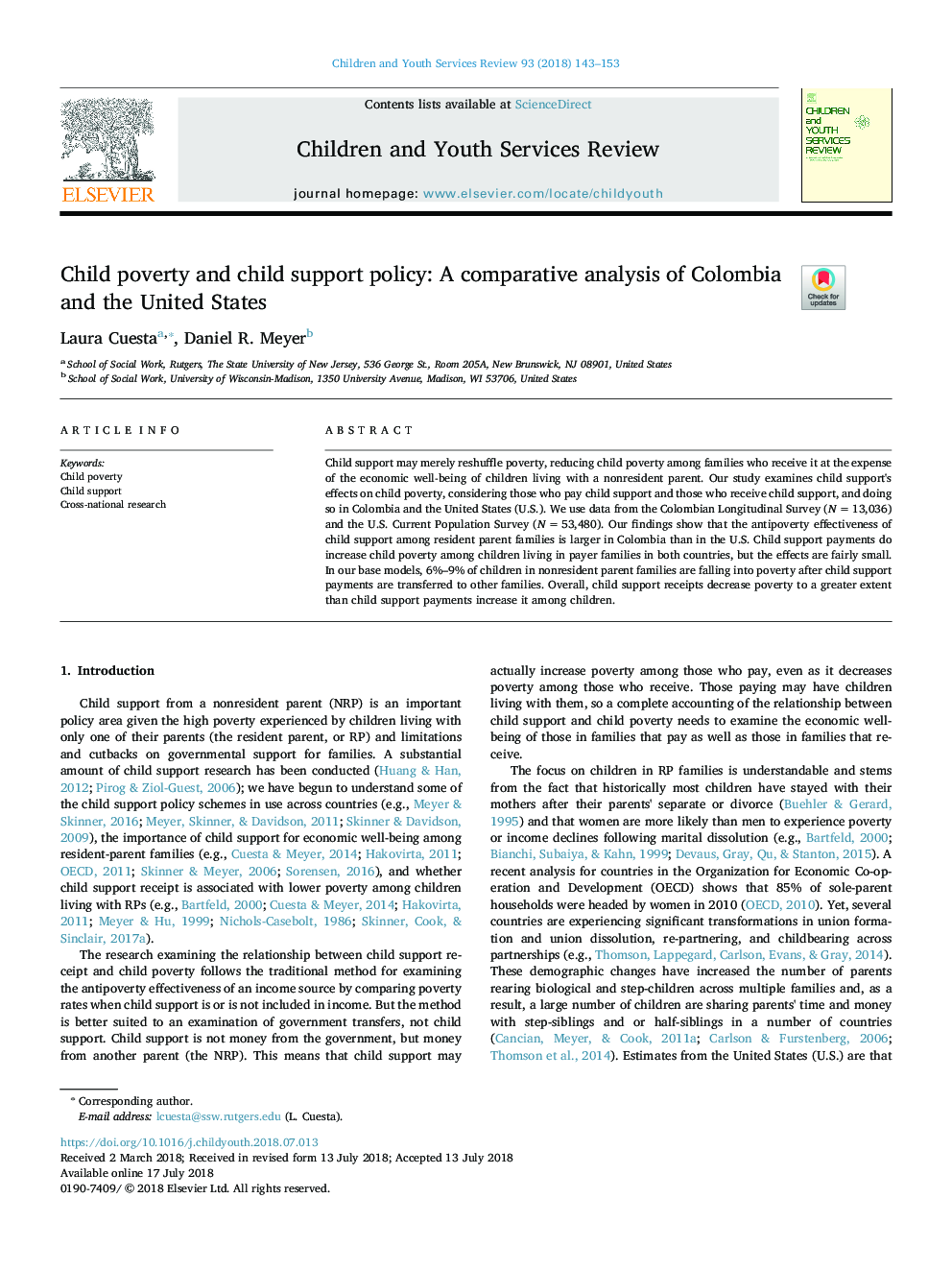| Article ID | Journal | Published Year | Pages | File Type |
|---|---|---|---|---|
| 6832794 | Children and Youth Services Review | 2018 | 11 Pages |
Abstract
Child support may merely reshuffle poverty, reducing child poverty among families who receive it at the expense of the economic well-being of children living with a nonresident parent. Our study examines child support's effects on child poverty, considering those who pay child support and those who receive child support, and doing so in Colombia and the United States (U.S.). We use data from the Colombian Longitudinal Survey (Nâ¯=â¯13,036) and the U.S. Current Population Survey (Nâ¯=â¯53,480). Our findings show that the antipoverty effectiveness of child support among resident parent families is larger in Colombia than in the U.S. Child support payments do increase child poverty among children living in payer families in both countries, but the effects are fairly small. In our base models, 6%-9% of children in nonresident parent families are falling into poverty after child support payments are transferred to other families. Overall, child support receipts decrease poverty to a greater extent than child support payments increase it among children.
Related Topics
Health Sciences
Medicine and Dentistry
Perinatology, Pediatrics and Child Health
Authors
Laura Cuesta, Daniel R. Meyer,
